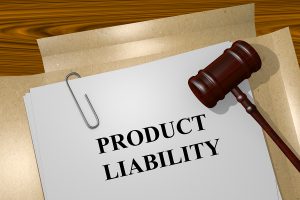When To Sue Over Defective Products
 Michael Babboni
Personal Injury
When it comes to dangerous product defects, American courts operate on a doctrine called “strict liability,” which means that a plaintiff doesn’t need to prove the manufacturer could have avoided the defect by being careful enough, but only that the product is defective and that it caused an injury. This means that product liability cases can be easier to resolve than they otherwise might be, but at the same time it’s not a good idea to sue people at the drop of a dented hat.
Michael Babboni
Personal Injury
When it comes to dangerous product defects, American courts operate on a doctrine called “strict liability,” which means that a plaintiff doesn’t need to prove the manufacturer could have avoided the defect by being careful enough, but only that the product is defective and that it caused an injury. This means that product liability cases can be easier to resolve than they otherwise might be, but at the same time it’s not a good idea to sue people at the drop of a dented hat.Are You Certain A Defective Product Caused A Personal Injury?
There are a lot of different ways a situation can go wrong and end with a physical injury or a drop in property value. For instance, if a climbing piton wriggles loose and the climber who was anchored to it falls and hurts himself, it could be that the piton’s manufacturer made it out of low-quality metal or stamped it in the wrong shape. However, it’s also possible that the climber didn’t pound it home correctly or else the surrounding rock broke loose on its own, and in either case the piton’s quality has nothing to do with the accident.
Are The Damages Significant?
A personal injury case can drag out for months or even years, and although most personal injury lawyers work for a percentage of the damage award it can be expensive to keep a court case going through all that time. You can go to a small claims court for faster results if you don’t ask for too much, but even then you have to spend money on court fees and time on case dates.
While it’s true you don’t have to limit your claim to the direct economic cost of a defect, punitive and pain-and-suffering damages are still calculated based on those economic costs. But on the other hand, personal injury damages aren’t necessarily limited to actual physical injuries: there are several different ways you can sustain a substantial economic loss, such as from paying for a product you can’t use because the manufacturer made a false promise or from a sudden loss in value because your product is defective.
Of course, “strict liability” only applies in cases where the product defect is actively hazardous to a person’s health. Outside of such instances, you’ll also need to prove that the manufacturer was at least negligent in checking for defects or representing its product accurately.
Are You Satisfied With The Manufacturer’s Ordinary Compensation?
Going to court to settle your differences with another party is a last resort, and you should treat it as such. If you can resolve a situation without bringing in the government (or in some cases an arbitration board), then you should do so. In most cases, manufacturers will offer money-back guarantees, free replacements, or free repairs with few to no questions asked while a product is under warranty.
If its product obviously caused an accident, a manufacturer will often pay for medical bills and lost wages without any need to threaten legal action. As such, if you can resolve a situation like this to your satisfaction without going to court, then you absolutely should.
If a defective product has caused you a physical injury, or even if it caused you some other financial loss, and if the manufacturer hasn’t compensated you the way you deserve, then you should contact a personal injury lawyer right away to find out what your options are. If you also live in or near St. Petersburg, Florida, you should make sure you contact the St. Pete Lawyer if you want the best possible results.
